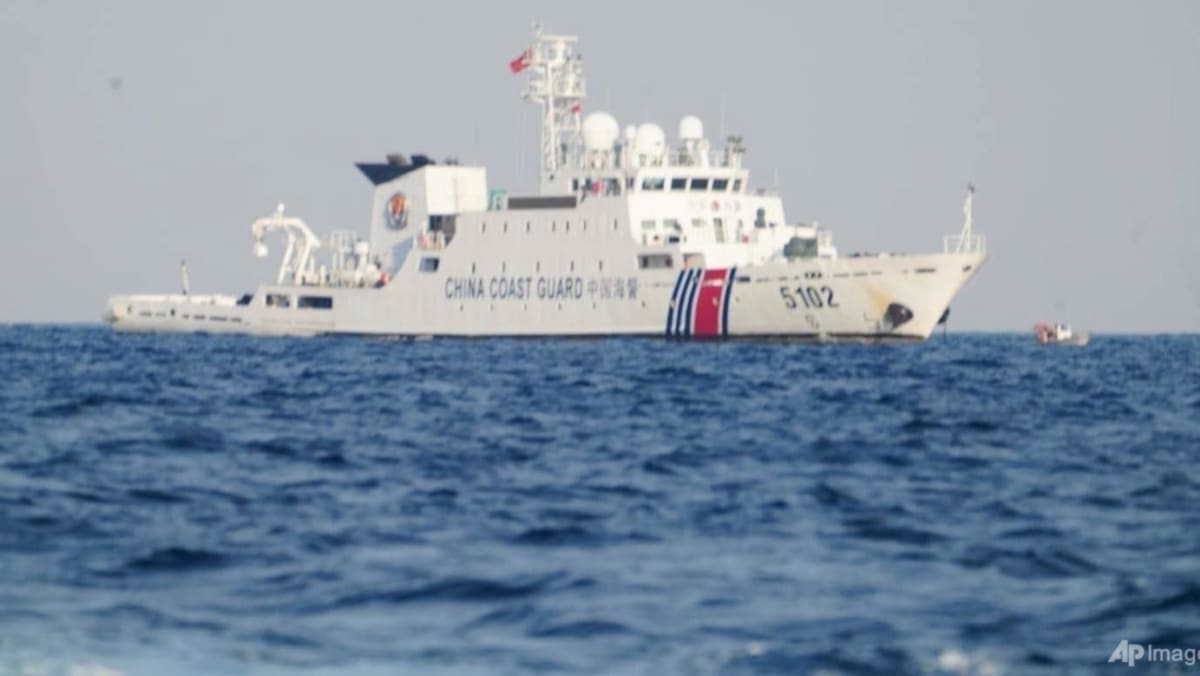South China Sea Dispute Heats Up: Philippine Accusations Against Chinese Navy Patrols
The South China Sea dispute has flared up again, with the Philippines leveling serious accusations against the Chinese Navy. Recent incidents involving Chinese naval patrols near Philippine-claimed features have heightened tensions and raised concerns about regional stability. This escalating situation demands careful examination of the facts and potential implications for the broader geopolitical landscape.
Philippine Claims and Evidence
The Philippine government has accused the Chinese Navy of engaging in aggressive and illegal activities within its exclusive economic zone (EEZ). These accusations include:
- Harassment of Filipino fishing vessels: Reports indicate Chinese naval vessels have actively prevented Filipino fishermen from accessing traditional fishing grounds within the Philippines' EEZ, a direct violation of international maritime law. This has caused significant economic hardship for Filipino fishing communities.
- Unauthorized entry into Philippine waters: The Philippines claims Chinese naval vessels have repeatedly entered its territorial waters without permission, further escalating the conflict and challenging Philippine sovereignty.
- Use of water cannons against Philippine vessels: Videos and eyewitness accounts suggest the use of water cannons by Chinese vessels against Philippine vessels conducting legitimate maritime activities. This aggressive tactic is seen as a deliberate act of intimidation.
The Philippine Department of Foreign Affairs has released official statements condemning these actions and demanding an immediate cessation of Chinese encroachment. They have provided evidence including photographic and video documentation to support their claims. These claims have been widely reported by international news organizations, further amplifying the global concern.
China's Response and Stance
China, for its part, has yet to issue a comprehensive response directly addressing the specific accusations made by the Philippines. However, China's consistent position maintains its historical claim to almost the entirety of the South China Sea, a claim rejected by an international tribunal ruling in 2016. China's actions are often framed within this historical context, although this does not negate the legal basis of the Philippine claims under UNCLOS (United Nations Convention on the Law of the Sea).
The lack of a direct and conciliatory response from China has further fueled the tension and raises concerns about Beijing’s commitment to peaceful resolution of the dispute.
Implications for Regional Stability and International Law
The escalating tensions in the South China Sea have significant implications for regional stability and the international rule of law. The potential for miscalculation and accidental conflict is high, particularly given the increasing militarization of the region. Furthermore, China's actions challenge the established principles of UNCLOS, undermining the international legal framework governing maritime disputes.
The international community has a crucial role to play in de-escalating the situation. Diplomatic efforts, backed by strong statements from major world powers, are essential to pressure both sides towards peaceful dialogue and adherence to international law.
The Path Forward: Diplomacy and International Cooperation
Resolving the South China Sea dispute requires a commitment from all parties to dialogue and adherence to international law. The following steps are crucial:
- Reinforced diplomatic efforts: Increased engagement by regional and international actors to facilitate dialogue and mediate the conflict.
- Adherence to UNCLOS: Respect for the established principles of UNCLOS as the legal framework for resolving maritime disputes.
- Confidence-building measures: Implementation of measures to reduce tensions and prevent incidents at sea.
- Regional cooperation: Increased cooperation among ASEAN nations to address the shared challenges posed by the South China Sea dispute.
The ongoing dispute underscores the urgent need for peaceful resolution and respect for international law. Failure to address this issue could have far-reaching consequences for regional stability and the global order. The international community must remain vigilant and actively work towards a diplomatic solution that upholds the rule of law and protects the interests of all parties involved.

